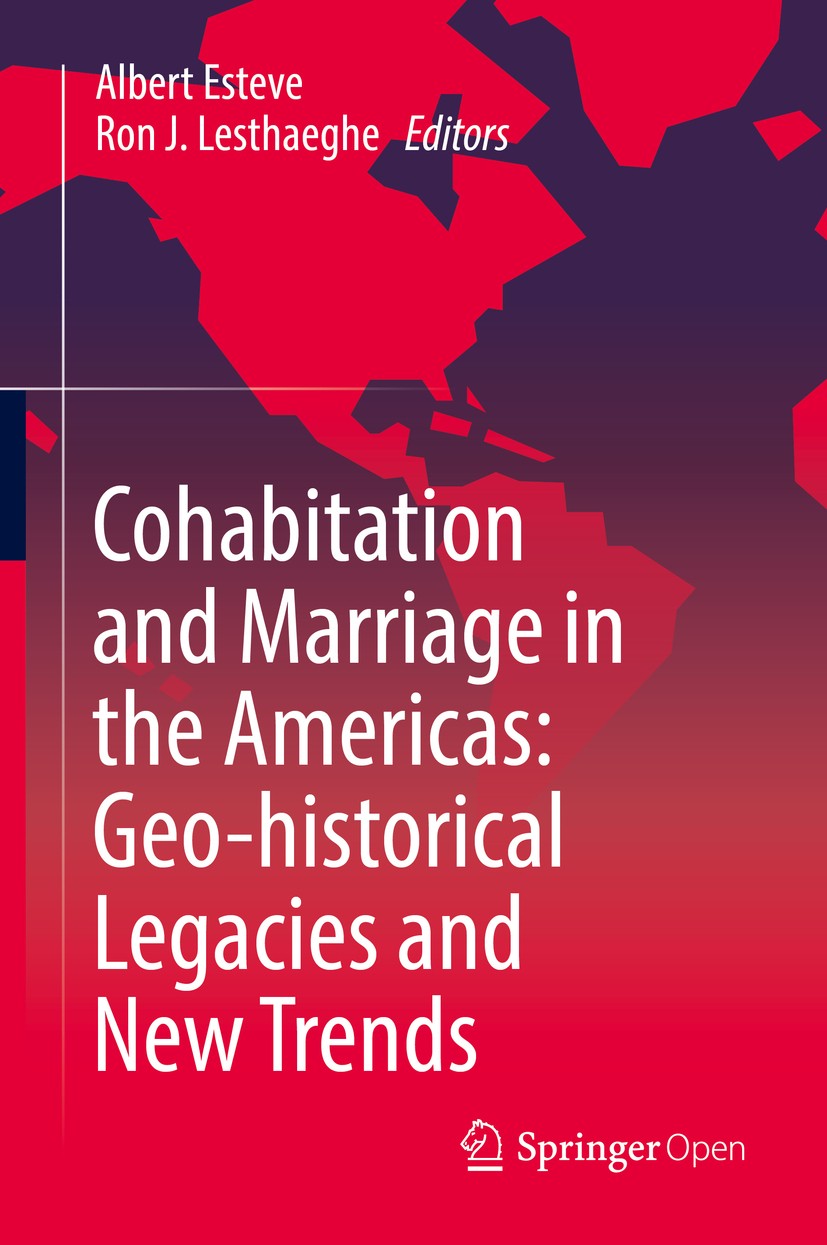| 书目名称 | Cohabitation and Marriage in the Americas: Geo-historical Legacies and New Trends | | 编辑 | Albert Esteve ,Ron J. Lesthaeghe | | 视频video | http://file.papertrans.cn/230/229176/229176.mp4 | | 概述 | This open access book empirically tests one of the currently most powerful explanatory frameworks for changes in family formation around the world, the theory of the Second Demographic Transition.Pres | | 图书封面 |  | | 描述 | This open access book presents an innovative study of the rise of unmarried cohabitation in the Americas, from Canada to Argentina. Using an extensive sample of individual census data for nearly all countries on the continent, it offers a cross-national, comparative view of this recent demographic trend and its impact on the family. The book offers a tour of the historical legacies and regional heterogeneity in unmarried cohabitation, covering: Canada, the United States, Mexico, Central America, Colombia, the Andean region, Brazil, and the Southern Cone. It also explores the diverse meanings of cohabitation from a cross-national perspective and examines the theoretical implications of recent developments on family change in the Americas. .The book uses data from the Integrated Public Use Microdata Series, International (IPUMS), a project dedicated to collecting and distributing census data from around the world. This large sample size enables an empirical testing of one of the currently most powerful explanatory frameworks for changes in family formation around the world, the theory of the Second Demographic Transition. .With its unique geographical scope, this book will provide re | | 出版日期 | Book‘‘‘‘‘‘‘‘ 2016 | | 关键词 | Collecting and distributing census data; Impact on the family; Integrated Public Use Microdata Series | | 版次 | 1 | | doi | https://doi.org/10.1007/978-3-319-31442-6 | | isbn_softcover | 978-3-319-81042-3 | | isbn_ebook | 978-3-319-31442-6 | | copyright | The Editor(s) (if applicable) and the Author(s) 2016 |
The information of publication is updating

|
|
 |Archiver|手机版|小黑屋|
派博传思国际
( 京公网安备110108008328)
GMT+8, 2026-1-23 21:12
|Archiver|手机版|小黑屋|
派博传思国际
( 京公网安备110108008328)
GMT+8, 2026-1-23 21:12


